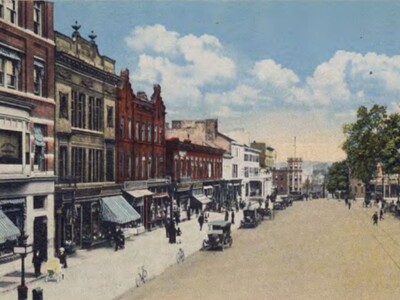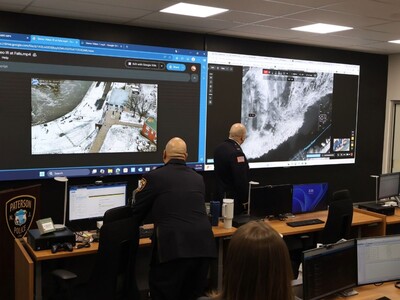Tips to Protect Your Pipes from Freezing this Winter Season
From New Jersey American Water -
The nose-nipping cold weather has arrived in New Jersey and New Jersey American Water is urging homeowners to set aside a few moments now, to prepare their plumbing and avoid the cost of broken pipe repairs.
“Although New Jersey winters are difficult to predict, this past week of cold weather was a reminder to everyone that now is the time to prepare,” said New Jersey American Water Vice President of Operations Tom Shroba. “Preparing our homes and protecting areas susceptible to freezing now can save the stress and cost of dealing with frozen pipes and the damage they might cause.”
Property owners are responsible for the maintenance of the water service line from the curb to the house, as well as any in-home piping.
New Jersey American Water encourages customers to be mindful of the following tips and take the necessary precautions as we enter the winter season:
To prepare now, customers should:
- Check sprinkler or irrigation systems. Make sure you have turned everything off and fully drained the systems.
- Identify your home’s freezing points. Check your home for pipes in areas that may be prone to freezing, such as crawl spaces, unheated rooms, basements, garages, and exterior walls.
- Know the location of the main water shut-off valve. If a pipe freezes or bursts, shut off the water immediately.
- Protect your pipes and water meters. Customers are encouraged to wrap exposed pipes with insulation or use electrical heat tracing wire; newspaper or fabric might also work. For outside meters, keep the lid to the meter pit closed tightly and let any snow that falls cover it. Snow acts as insulation, so don't disturb it.
When temperatures stay below freezing, customers should:
- Prevent pipes from freezing. If you have pipes that are vulnerable to freezing, allow a small trickle of water to run overnight to keep pipes from freezing. Capture this in a container for watering indoor plants and other uses.
- Open cabinet doors to expose pipes. Opening cabinet doors exposes pipes to warmer room temperatures to keep them from freezing.
If pipes freeze, customers should:
- Shut off the water immediately. Don't attempt to thaw frozen pipes unless the water is shut off. Freezing can often cause unseen cracks in pipes or joints.
- Apply heat to the frozen pipe by warming the air around it, or by applying heat directly to a pipe. You can use a hair dryer, space heater or hot water. Be sure not to leave space heaters unattended.
- Do not use kerosene heaters or open flames to thaw pipes inside your home.
- Once the pipes have thawed, turn the water back on slowly and check for cracks and leaks.
When customers are away, they should:
- Have a friend, relative or neighbor regularly check their property to ensure the heat is working and the pipes have not frozen.
- Set your thermostat. Setting your thermostat at 55 degrees to prevent freezing.
- Consider purchasing a freeze alarm. The alarm will call a user-selected phone number if the inside temperature drops below 45 degrees.
“This is also a great time for customers to log onto the customer portal, MyWater, and check that their contact information is up to date,” added Shroba.
Customers are also encouraged to check their contact information is up to date to receive important water service information should their service be impacted. New Jersey American Water uses a mass-notification system to keep customers informed about water service-related events by phone, email, and/or text, depending on customer preference. Customer contact information, preferences, and reporting emergencies can be managed on our customer online portal, MyWater.
New Jersey American Water also advises that cold weather temperatures can hasten aging water mains to break and cause unsafe driving conditions. If you see a leak or your water service is disrupted, please report it at emergency.amwater.com.













